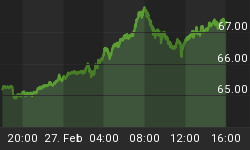In the era when people are busy reading about ransomware and cyber and crypto crime, old-fashioned money-laundering ends up being neglected, but it’s alive, and well.
In July, the US Securities and Exchange Commission (SEC) accused an 86-year-old woman and her son of being part of a cryptocurrency Ponzi scheme. They made more than $12 million in the end.
Earlier this week, the same amount was seized by the Federal prosecutors in Detroit, Michigan, in a much more spectacular case: The money is allegedly part of a large cash laundering operation, working between the U.S. and Dubai, the United Arab Emirates.
According to the court filing, some of the laundered cash was used to purchase armored vehicles for a drug trafficking operation based mostly in Michigan.
The cash laundering operation, referred to as “The Shadow Exchange,” used fake invoices and different strategies to disguise the origins of cash distributed among banks. Dozens of wire transfers were made to that effect.
“The Shadow Exchange provided services to persons seeking to transfer U.S. dollars in a manner calculated to avoid anti-money laundering measures of the financial system and the scrutiny of international law enforcement,” the filing said.
The filing did not name any individuals involved in the scheme, within the U.S. or Dubai, and it is not clear whether any arrests have been made. However, the filling said that customers of the Shadow Exchange also included at least one international criminal organization.
Over the past 12 months, the coronavirus pandemic and related lockdowns have presented criminals with even greater opportunities to launder billions of dollars.
The pandemic has forced banks to move their customer interactions online, with criminals having exploited difficulties in verifying customer identities.
According to the Financial Action Task Force, the intergovernmental watchdog for financial crime, more than 60 million new bank accounts were opened online last year, but not every digital ID was reliable.
Last September, BuzzFeed News and the nonprofit International Consortium of Investigative Journalists (ICIJ) published classified U.S. government documents reporting that major banks processed $2 trillion in transactions since 2000 despite suspecting they were connected to illegal activity.
The leak, called “FinCen files”, revealed how some of the world's biggest banks have allowed criminals to move dirty money around the world. The cache of files of more than 2,500 mostly files banks sent to the US authorities between 2000 and 2017.
The ICIJ said the private filings with regulators show that some of the largest U.S. banks "kept profiting from powerful and dangerous players even after U.S. authorities fined these financial institutions for earlier failures to stem flows of dirty money.
Since the financial crisis, US banks have been fined $243 billion according to a list compiled in 2018 by Keefe, Bruyette and Woods. Since 2008, Bank of America has paid $76 billion in fines. JPMorgan Chase features second on the list, with nearly $44 billion in fines.
On the crypto side, global ransomware attacks soared in 2020, which saw a 62% increase in ransomware globally and 158% spike in North America over the previous year. The total amount paid, at least what was reported, was $350 million, a 311% increase over 2019. And the vast majority of ransom was paid in cryptocurrency.
Even though it is less than 1% of its transactions, bitcoin addresses with known criminal connections transferred at least $3.5 billion of the virtual currency in 2020.
Just last month, the SEC charged the founder of a major crypto lending platform with a $2-billion fraud. The SEC has charged BitConnect founder Satish Kumbhani, an Indian national, with fraud for lying about the exchange’s ability to generate profits and violating registration laws meant to protect investors.
















